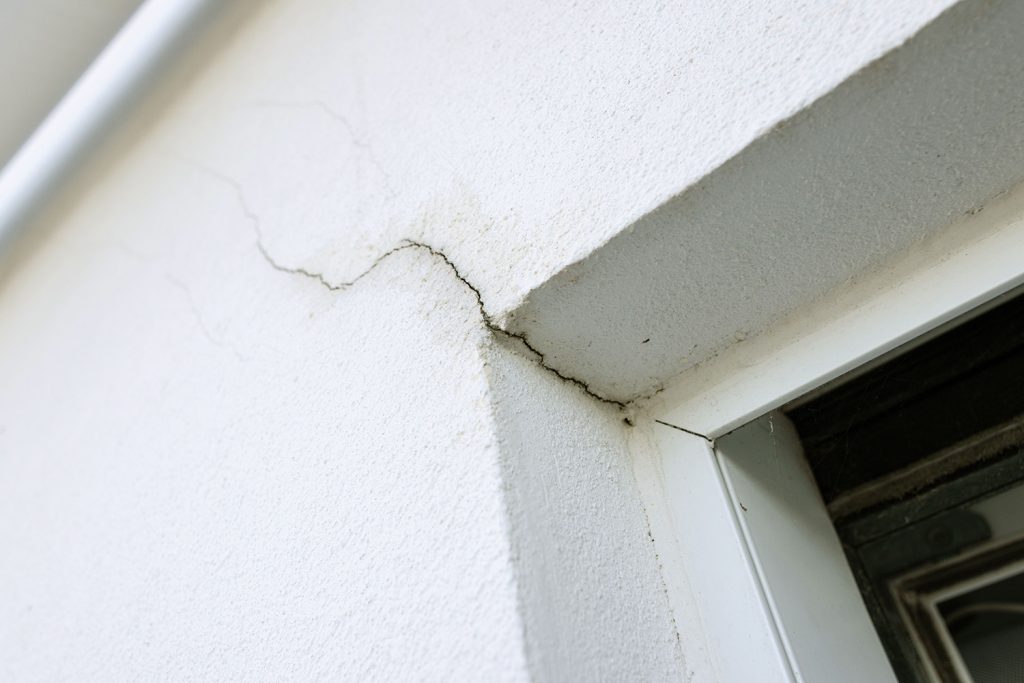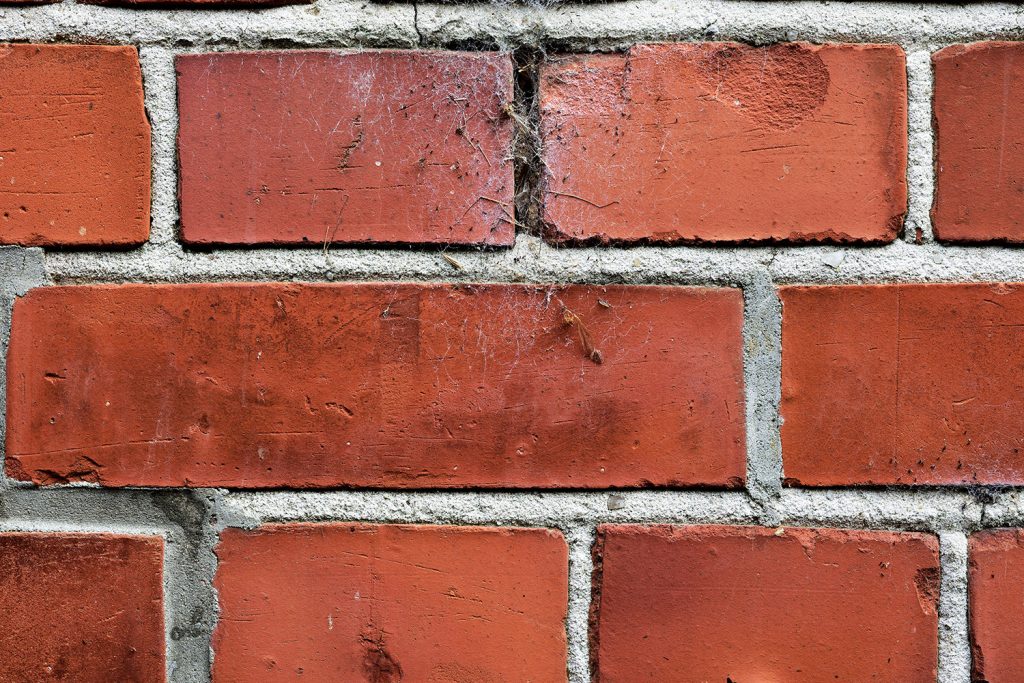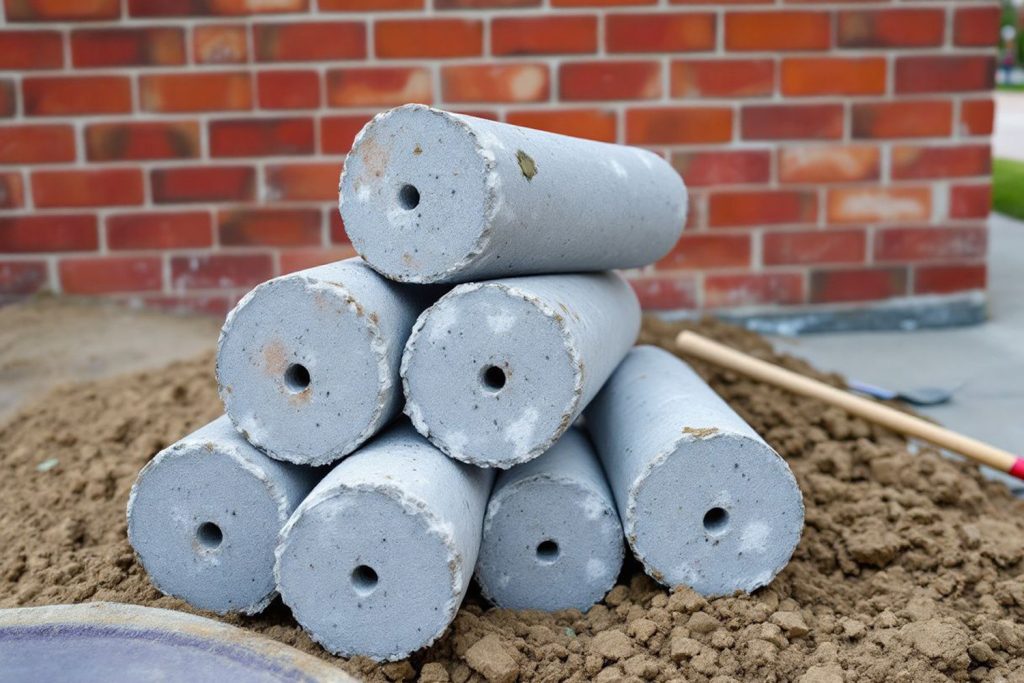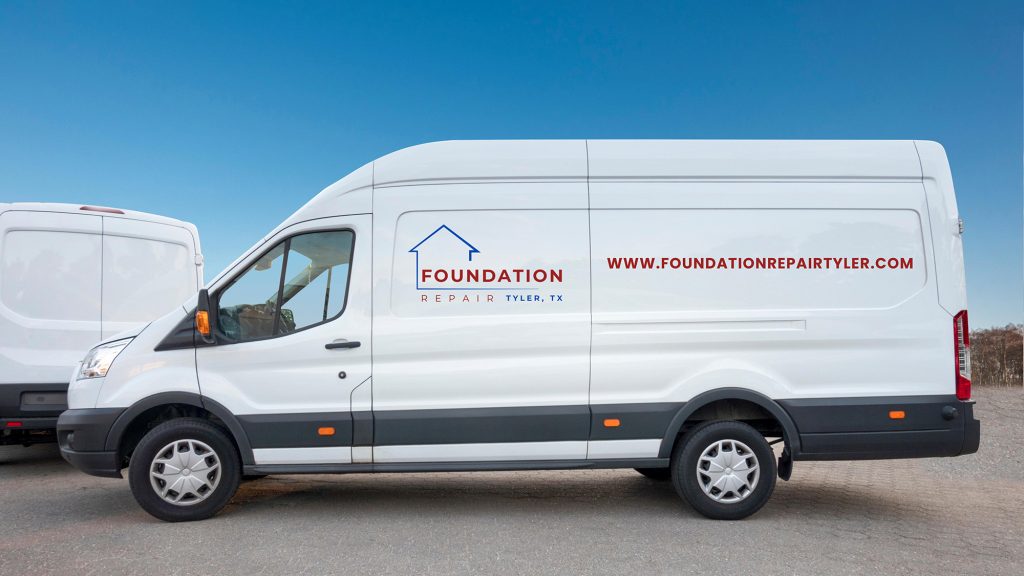Is your commercial building showing signs of foundation problems? You’re not alone. But there’s good news: you can hire our professional commercial foundation repair contractors in Tyler to stabilize your property and protect your investment before small issues become major ones.
Commercial properties face unique foundation challenges and can’t afford liability or downtime. Our commercial foundation repair team is used to working in businesses and minimizing interruptions and intrusions that disturb your typical workday flow.
What Foundation Issues Can Do to Your Business
Cracked walls, uneven floors, and misaligned door frames create an unprofessional appearance that visitors notice immediately. When foundation issues progress, they lead to plumbing breakages, electrical problems, and potential safety hazards for employees and customers alike.
Foundation Damage And Property Value
Foundation problems drastically reduce your commercial property’s market value. A building with visible foundation issues might sell for 10-15% less than similar properties with stable foundations.
Potential buyers or tenants often request substantial discounts when they spot foundation problems during inspections.
Weak Foundations And Liability
Unstable foundations can create serious liability concerns for business owners.
Uneven walkways cause trip hazards while structural weaknesses might violate building codes.
After all, you’re responsible for maintaining a safe environment for customers, employees, and visitors and foundation issues compromise this obligation.
Get Answers:
- Signs Your Commercial Building Needs Foundation Repair
- Exploring the Causes: Why Foundations Fail in Tyler
- Types of Commercial Foundation Repair
- Best Commercial Foundation Repair Company In Tyler

Start With A Free Inspection (It’s Better To Know)
The best thing to do if you suspect foundation damage is to get a free foundation inspection to find out what’s causing your foundation issues; whether it’s drainage problems or shifting soil beneath your building.
An inspection typically takes less than an hour and at the end you’ll know exactly what repairs are needed. You’ll get straightforward information about potential solutions like slab leveling, piering, or filling voids with polyurethane and other materials.
Taking this first step doesn’t commit you to repairs but gives you the knowledge to make educated choices to protect your investment.

Signs Your Commercial Building Needs Foundation Repair
Foundation problems in commercial buildings often appear gradually before becoming serious structural issues. Recognizing these early warning signs can save you thousands in repair costs and prevent business disruptions.
Cracks: From Hairline To Diagonal Step Cracks
Not all cracks signal disaster, but they shouldn’t be ignored. Hairline cracks might simply result from normal concrete shrinkage or minor settling, but they need monitoring as they can worsen over time.
Diagonal cracks in brick or concrete block foundations indicate soil pressure against your building’s foundation, creating structural stress and potential basement leaks.
The most concerning are stair-step cracks in brick or concrete block walls which point to foundation settlement and require immediate attention.
Gaps Around Windows And Doors
Notice spaces appearing where walls meet window frames or door jambs? These gaps are telltale signs that your commercial building’s foundation is shifting.
As the foundation moves, it pulls the framing of the building with it, creating separations. In Texas, these gaps often widen during dry periods when soil contracts.
Windows And Doors That Stick
Doors that suddenly won’t close properly or windows that jam are red flags. When a commercial building’s foundation shifts, it throws the entire frame out of square. This misalignment makes doors catch on their frames or windows refuse to open smoothly.
Pooling Water Near The Foundation
Poor drainage leads water to collect near your foundation, where it can erode soil, create pressure against foundation walls, and seep into basements. In Tyler’s climate, this water infiltration becomes particularly problematic during heavy rains.
Uneven / Sloped Floors
Sloping floors often indicate that parts of your foundation have settled more than others. You might notice rolling objects traveling across what should be level surfaces or feel a distinct tilt when walking.

Exploring the Causes: Why Foundations Fail in Tyler
Commercial foundations in Tyler face unique challenges that can lead to costly damage over time. Understanding these issues helps business owners protect their investments and maintain safe, stable properties.
Common Causes Of Foundation Issues
Commercial foundation issues pop up over and over again in our area for the same few reasons -and understanding them can help you avoid significant repairs.
Clay Soil
Our clay-heavy soil expands significantly when wet and shrinks dramatically during dry periods. Your building’s foundation rides this constant movement like a wave, creating stress points where cracks develop.
Extreme Weather
Tyler’s weather patterns put extra strain on commercial foundations. Hot, dry summers cause soil to pull away from your foundation, creating voids underneath. When heavy rains follow, water rushes into these gaps, causing uneven pressure and shifting.
Tree Roots
Roots from large trees extend far beyond the canopy, drawing moisture from the soil beneath your foundation. This creates dry areas that shrink and settle, leading to uneven support. Or the roots can put direct pressure on the slab as well.
Drainage Issues
Poor drainage around your commercial property is a foundation’s worst enemy. Water pooling near your building saturates the soil, increasing pressure against foundation walls. Over time, this creates cracks in foundation structures and allows water to penetrate beneath the slab.

Types of Commercial Foundation Repair
Let’s look at the most effective methods used by foundation repair companies throughout Texas:
Popular Foundation Repair Methods for Commercial Buildings
Each of these methods addresses a different source of foundation problems and may, in some cases, be used in combination with other techniques to provide a stable, and lasting, foundation for your business.
Piering and Underpinning
Piering systems are the workhorses of commercial foundation repair in Tyler. These steel push piers, or helical piers, get driven deep into competent soil or bedrock beneath your building, creating reliable support.
For heavier commercial structures like tilt-up buildings, we’ll typically place piers more frequently (about every 4 feet) to distribute the additional weight evenly.
Underpinning expands your foundation’s depth or width to spread the building load more effectively. Foundation specialists might recommend techniques like pit underpinning, mass pouring, beam and base methods, or pile underpinning depending on your building’s specific needs.
Slab Jacking: Raising Sunken Floors
Slab jacking lifts your sunken concrete floors by injecting specialized material beneath them. This non-invasive technique fills voids and raises the concrete back to its original position, making it ideal for commercial properties where minimal disruption is essential.
Your customers won’t even know repairs are happening while cracks disappear and uneven floors become level again.

The Best Commercial Foundation Repair Company in Tyler
Finding the right commercial foundation repair company in Tyler is very important for protecting your property investment. Our experienced contractors can identify problems that you would most likely miss otherwise, saving you money in the long run.
Finding The Right Contractor
Our decades of experience in Tyler and the surrounding communities mean we know the city, the people, and the issues as well.
We’re also fully insured and bonded to protect your property during repairs. And we offer industry standard warranties on the craftsmanship of all our work -so you’re covered no matter what.
Ask These Questions
When talking to potential foundation repair contractors, ask: “How many commercial buildings have you repaired in Tyler?”to understand their level of experience.
Find out what techniques they use and ask about their warranty terms and what they cover.
Question them about their inspection process and how they determine the root cause of foundation issues. We’re always happy to provide this information to our potential customers.
Talk To A Foundation Repair Expert Right Now
Don’t wait until small cracks become major structural problems. Call or email us for a free, no obligation inspection and estimate for your project and speak with an expert today!
Frequently Asked Questions
What are the most common signs of foundation problems in commercial buildings?
The most common signs include cracking walls (especially diagonal or stair-step cracks), sticking doors and windows, gaps around window and door frames, uneven or sloped floors, and pooling water near the foundation. These symptoms indicate the foundation is shifting, settling, or experiencing stress that could compromise the building’s structural integrity if left unaddressed.
Why are foundation problems more common in Tyler, Texas?
Tyler’s clay soil swells when wet and shrinks when dry. This constant expansion and contraction creates stress on foundations and the region’s hot, dry summers and heavy rains exacerbate these soil movements, making commercial buildings in Tyler especially vulnerable to foundation issues.
Can minor foundation cracks be ignored in commercial buildings?
Minor cracks shouldn’t be ignored, even if they seem insignificant. While hairline cracks might not indicate immediate structural failure, they can worsen over time as the foundation continues to shift. In commercial buildings, what begins as a small crack can develop into a serious structural issue that affects operations, safety, and property value. Early intervention is always more cost-effective.
How do foundation problems affect a commercial property’s value?
Foundation problems significantly reduce property value, often by 10-30%. Potential buyers typically request substantial discounts to offset repair costs and future risks. During property inspections, foundation issues raise red flags that can complicate financing. Additionally, unresolved foundation problems can violate building codes, creating liability concerns that further diminish marketability and value.
What is piering and underpinning in foundation repair?
Piering and underpinning are stabilization techniques that provide deep foundation support. This method involves driving steel piers through unstable soil until they reach competent soil or bedrock. The building’s weight is then transferred to these piers, effectively bypassing problematic soil layers.
What is slab jacking and when is it used?
Slab jacking (also called mud jacking or concrete leveling) is a non-invasive repair method that lifts sunken concrete slabs by injecting material underneath. Small holes are drilled in the concrete, and a mixture is pumped in to raise the slab to its original position. It’s typically used for concrete floors, walkways, and patios that have settled but aren’t severely damaged.
How long do commercial foundation repairs typically last?
Quality foundation repairs from reputable companies typically last the lifetime of the building, with many companies offering warranties of 10-25 years or more. The longevity depends on the repair method used, soil conditions, water management improvements, and whether the underlying causes were properly addressed. Properly engineered solutions from experienced contractors provide the most durable results.
Are foundation repairs disruptive to business operations?
While some noise, vibration, and limited access are unavoidable during foundation repair, experienced contractors can often complete repairs while businesses remain operational. Many companies offer flexible scheduling, phased repairs, and after-hours work to accommodate commercial clients’ needs.
